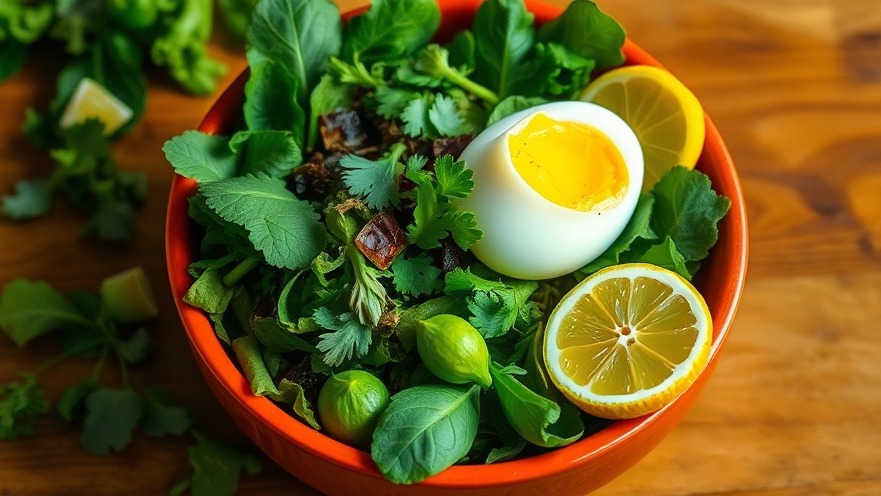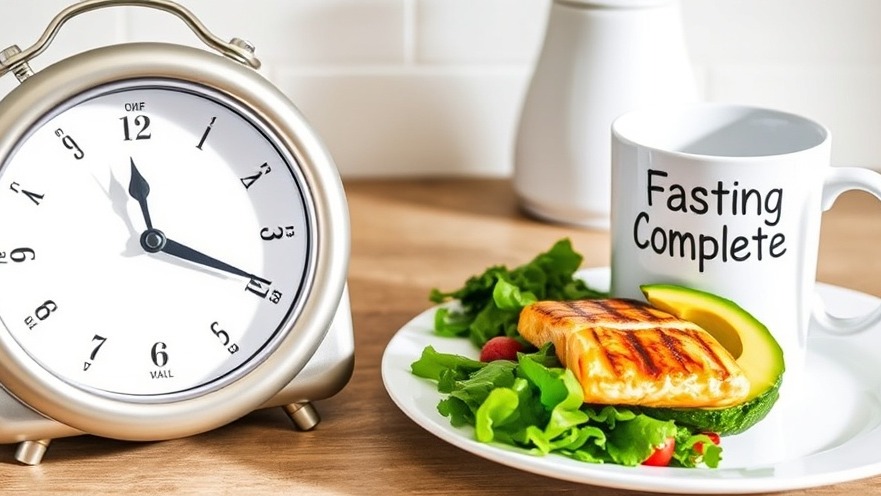
The Vital Role of Your Liver in Overall Health
Your liver, often referred to as the body's "soccer mom organ", plays a crucial role in detoxification, fat loss, longevity, and metabolic health. A sluggish liver can lead to chronic diseases, weight gain, and metabolic syndrome.
It’s essential to maintain the health of this four-and-a-half-pound organ, which regenerates every 150 to 500 days. With a targeted seven-day protocol, you can clean your liver effectively and witness noticeable changes.
In 'How To CLEAN Your Liver In 7 Days!', the discussion dives into effective strategies to rejuvenate your liver, exploring key insights that sparked a deeper analysis on our end.
Understanding the Dangers of a Sluggish Liver
Your liver is like your body’s natural filter—it helps clean your blood, break down fats, and manage hormones and nutrients. But when your liver gets overloaded—like when you eat too many processed foods or drink too much alcohol—it can become sluggish. That means it doesn’t work as well as it should.
One big issue with a sluggish liver is poor bile production. Bile is a digestive fluid made by your liver that helps break down fats from the food you eat. Without enough bile, your body can’t digest fat properly, which means you may not absorb important nutrients like vitamins A, D, E, and K. You might also feel bloated, constipated, or low on energy.
Another common problem is eating too much fructose—especially from sugary drinks or foods made with high-fructose corn syrup. Unlike glucose, which is used by your entire body for energy, fructose is processed almost entirely by the liver. When there’s too much, your liver turns it into fat. Over time, this can cause non-alcoholic fatty liver disease (NAFLD), which now affects nearly 1 in 3 adults in the U.S., according to the American Liver Foundation.
Seven-Day Liver Cleansing Protocol
Cleansing your liver doesn’t mean drinking expensive juices or going on a starvation diet. It means giving your liver a break from harmful substances and supporting it with healing foods and habits.
Cut Out Fructose and Sugary Foods
Start by reading labels and removing foods with added sugars, especially high-fructose corn syrup. Think soda, candy, packaged snacks, and sweetened cereals. Even many "health drinks" like sports or energy drinks are loaded with sugar.
Avoid Alcohol
Even small amounts of alcohol can tax your liver. If you drink often, your liver may already be inflamed or developing fat deposits. Going alcohol-free for a week (or longer) allows your liver to begin healing and reducing inflammation. According to research from the National Institute on Alcohol Abuse, liver cells can regenerate if given a break from alcohol.
Ditch Seed Oils
Industrial seed oils like soybean, corn, canola, and sunflower oil are found in many fried and packaged foods. These oils break down into harmful compounds when heated, contributing to inflammation and oxidative stress in the liver. Instead, choose healthier fats like:
Extra virgin olive oil
Coconut oil
Avocado oil
Grass-fed butter or ghee
These support cellular repair and reduce inflammation.

Prioritize Nutrient-Rich Foods
Think of food as medicine for your liver. During your cleanse, fill your meals with liver-supporting ingredients.
Bitter Foods for Bile Flow
Bitter flavors are your liver’s best friend. They stimulate bile production, which helps flush toxins out of your body. Add these to your meals:
Arugula, dandelion greens, or mustard greens
Lemon juice in warm water (great in the morning)
Herbs like ginger, turmeric, rosemary, and mint
Choline for Liver Repair
Choline is a nutrient that helps move fat out of your liver and supports cell regeneration. It’s found in:
Egg yolks
Beef or chicken liver
Wild-caught salmon
Brussels sprouts and broccoli
If you’re not getting enough from food, talk to a practitioner about supplements like phosphatidylcholine.

The Importance of Intermittent Fasting
Intermittent fasting isn’t just a weight-loss trick. It’s also a way to give your liver time to rest and repair. One common schedule is the 18/6 method: you fast for 18 hours and eat all your meals in a 6-hour window.
Why does this help?
Your liver gets a break from constantly processing food
It activates a process called autophagy, where your body clears out damaged cells
Fasting improves insulin sensitivity, which helps reduce liver fat
Choose a window that fits your lifestyle—like eating between 12 p.m. and 6 p.m.—and make sure to hydrate throughout the day.
Utilizing Home Remedies for Enhanced Detoxification
Some natural remedies can support the liver’s detox efforts—especially if used along with healthy food and rest.
Castor Oil Packs
Castor oil packs involve placing cloth soaked in castor oil over your liver area (right side of your abdomen), then covering it with plastic and a warm heating pad. This is believed to:
Improve blood and lymph flow
Reduce inflammation
Support liver function
It’s relaxing and can be done while lying down for 45–60 minutes.
Coffee Enemas
This may sound unusual, but some people use organic coffee enemas to stimulate the liver and bile ducts. The caffeine causes the liver to release bile, helping flush out waste. Always consult a healthcare provider first, especially if you have digestive issues or medical conditions.

Managing Stress for Liver Health
Your emotional state impacts your liver more than you might think. Traditional Chinese Medicine has long associated the liver with emotions like anger and frustration. Modern research supports the idea that chronic stress increases inflammation and weakens immune function, making it harder for the liver to do its job.
Simple ways to reduce stress:
Journaling – Try writing three things you’re grateful for each day (this is sometimes called “Vitamin G”)
Walking in nature – Green spaces have been shown to lower cortisol levels
Breathing exercises or meditation – Just 10 minutes a day can calm your nervous system.
Long-Term Liver Wellness Strategies
While a seven-day protocol can kickstart healing, the real goal is lasting liver health. Here’s how to stay on track:
Keep Your Diet Clean
You don’t need to be perfect, but eating whole, unprocessed foods 80–90% of the time makes a big difference. Cook at home when you can, and learn to read ingredient labels.
Move Your Body
Regular exercise boosts circulation and helps your liver flush out waste. Aim for:
Daily walks
Strength training 2–3x per week
Stretching or yoga to support lymph flow
Use Tools That Help You Navigate Choices
Eating out or buying packaged foods can be tricky. Some people use “seed oil allergy” cards when ordering food at restaurants to ask if items are cooked in seed oils. You can also use apps like Yuka or EWG’s Healthy Living to scan product ingredients.
Keep Periodic Detox Practices
Even once you’re feeling better, doing a mini-reset every month or two—such as intermittent fasting or a sugar-free week—can keep your liver functioning well.
Final Thoughts: A Healthier Liver, A Healthier Life
Your liver works hard for you every day, often without any symptoms until something’s wrong. Giving it a break from toxins, fueling it with real foods, and managing your emotional and physical stress can go a long way.
By following these steps, you’re not just cleansing your liver—you’re setting yourself up for more energy, clearer thinking, better digestion, and overall wellness. And remember: even small daily changes can add up to powerful, lifelong results.
Continue your journey toward balance and wellness—discover more articles in Holistic Healing or return to the Sacramento Living Well homepage for more community stories.
---
Authored by the Sacramento Living Well Editorial Team — a publication of DSA Digital Media, dedicated to highlighting wellness, local living, and inspiring community stories throughout Greater Sacramento.
 Add Row
Add Row  Add
Add 





Write A Comment